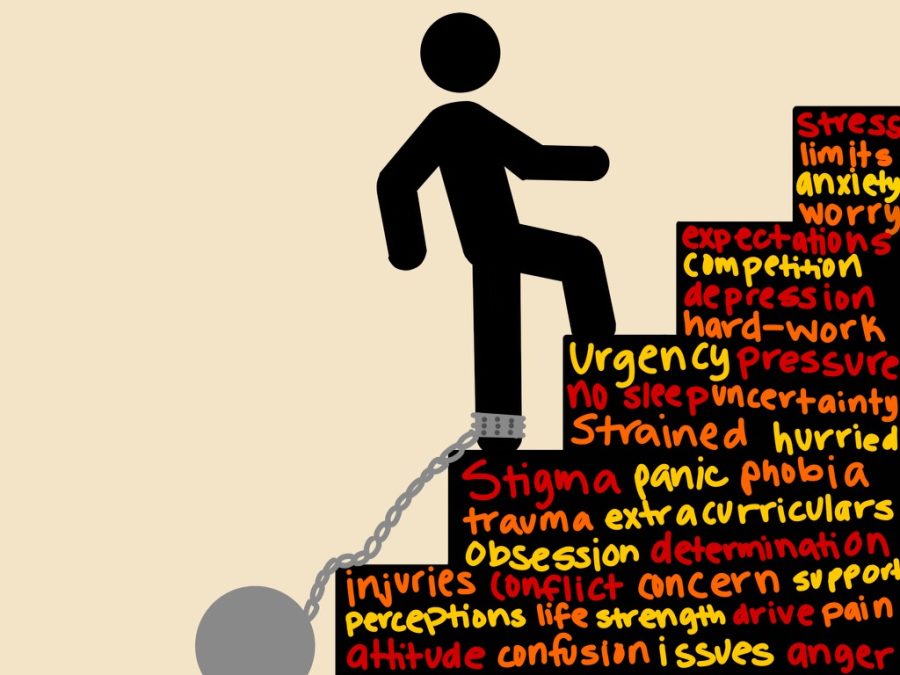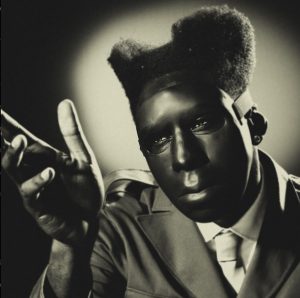Your Health Matters; Student Athletes Need to Pay Attention to Their Mental Health
November 30, 2021
Recently, there has been a lot of talk about athletes’ mental health. We have seen professional athletes such as Simone Biles and Naiomi Osaka putting their mental health before their professional careers. People who are committed to getting better at their sport put themselves through a lot of pain both mentally and physically. So how do you become a better student athlete, while also taking care of yourself? There is a way to do this, believe it or not.
First, let’s talk about what mental health actually is. Merriam-Webster Dictionary defines it as, “a person’s condition with regard to their psychological and emotional well-being.” So in basic terms, it is how you feel on the inside. Due to the fact that athletes are constantly trying to perfect their practice, they spend a lot of time focusing on what they are not doing well. This causes their mental health to decline.
Marshall Mintz, a sport psychologist from New Jersey says that, “The incidence of anxiety and depression among scholastic athletes has increased over the past 10 to 15 years.”
This is definitely not a good statistic. With so many teenagers’ mental health on the decline, students who play sports are even more at risk for different psychological issues. Why is this you ask? Well Timothy Neal, a professor of Health and Human Performance at Concordia University Ann Arbor, states that the issue is involved with something called “sports professionalization.”
Sports professionalization is a trickle-down effect that says that because college sports are trying to reach the same level of play as professional sports, high school athletes are striving to reach college-level athleticism. As many know, when athletes move up in sports, more pressure and expectations are put on them to be better. Since this is the case, athletes are constantly reaching for higher standards than they need to and therefore their mental health is taking a huge hit because of these high expectations for themselves.
A narrative systematic review was published in 2016 on the mental health of elite athletes. The conclusion of this research was that the population of all types of athletes is very vulnerable to mental health issues. Because of these issues, athletes are also at risk for many different physical health issues such as injury, overtraining, and burnout. Overall, student athletes need to start paying attention to their mental health so as to not suffer from issues both mentally and physically.
In an article on CNN Sports, Simone Biles talks about what has been going on since the 2021 Olympics and how focusing on her mental health has really benefited her: “Getting the mental health therapy that I need has been really relieving for me,” she says.
Biles has, since then, become a part of many mental health organizations; she also has been taking it easy in the gym while also focusing on herself and her health.
Now, you may be wondering, how do I support my mental health while also playing my sport? The best thing to do is take time for yourself to really figure out what your mind and body need. If you are not feeling well one day, take it easy and rest. If you feel like you are being too hard on yourself during a practice, take a deep breath and remember that it takes time to see progress. You may want to talk with a therapist who specializes in working with athletes. Stay up to date with profesisonal athletes on social media; study how they take care of their mental health.
And remember what your focus is: the love of the game.
Sources Used:
https://link.springer.com/article/10.1007/s40279-016-0492-2
https://www.merriam-webster.com/dictionary/mental%20health
https://www.theatlantic.com/education/archive/2019/04/teen-athletes-mental-illness/586720/
https://www.nfhs.org/articles/challenges-of-mental-health-issues-in-high-school-athletics/








Shannon Clark • Jan 11, 2022 at 4:55 pm
I really appreciate this article! Fortunately, professional athletes are speaking up about their mental health struggles, but it is also important to remember athletes at all levels may experience mental health challenges. The article is also very well written. Great job 🙂
Rhonda Strosberg • Dec 1, 2021 at 10:02 am
Great insights from a focused student & athlete!